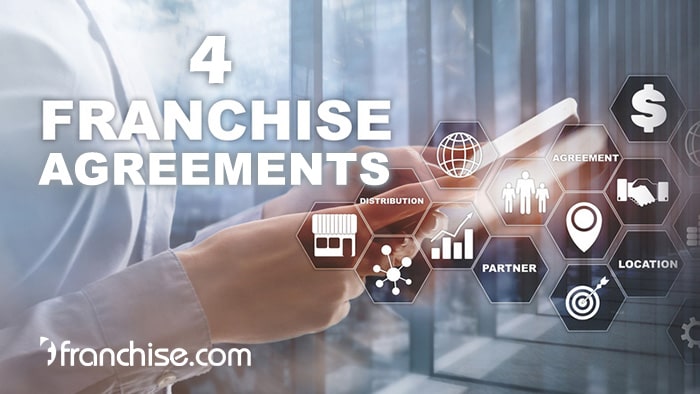What are the 4 Types of Franchising?
Often, larger franchises have multiple franchise models you can choose from when joining its system. When you choose one of the 4 types of franchising agreements, you can benefit from an established brand, a proven concept, a network of fellow franchise owners, a franchise team to train and support you, and much more.
model for you; one that fits your lifestyle. When you find a business that works with your schedule and life, then you can focus on achieving your goals as a business owner.

Read on to learn about the 4 types of franchising and the most successful franchise models.
Types of Franchising/Franchise Ownership – Single Unit Franchise
The most common type of franchise is the single unit franchise. Typically, the franchise owners or franchisees are "owner-operators" which means they operate the franchise themselves rather than hire an employee to run it for them. And, as the name suggests, it means you own one unit.
If you have never owned a business before, this is most likely where you'll begin. It may feel comfortable for you to start small, get your feet wet and then grow from here. Adding more units as you become more profitable.
Types of Franchising/Franchise Ownership – Multi-Unit Franchise
More experienced entrepreneurs tend to become multi-unit franchise owners. And, just as the multi-unit name suggests, it means you own more than one unit. A multi-unit agreement with a franchisor gives you the rights to develop multiple units within a specific territory. Frequently, there is a time frame in which you must expand. For example, Whataburger asks franchise owners to open 5 restaurants in 5 years.
Most multi-unit franchisees hire a manager to oversee one or more locations so they can focus on growing rather than running the business.
What's the benefit of the multi-unit franchise model? First, you receive reduced costs per unit because your fixed costs are shared across more locations. And, the franchisor may also offer you reduced franchise fees for each additional unit. Also,
- You can attain greater profitability over time with multiple units.
- You'll receive more extensive training for you and your management personnel.
- You can share talent among your units.
- It's easier to access financing for multi-units.
- As your franchise business grows, you will gain greater influence within the franchise system. The larger you grow the more seriously the franchisor may take into account your feedback, requests and ideas.
- The larger and stronger you grow your business, the more attractive it will be for future buyers. If you want to resell the business down the road to retire, you would be able to ask for more money than if it were a single unit.
Types of Franchising/Franchise Ownership –Area Developer (aka Area Representative)
Becoming an Area Developer or Area Representative is similar to becoming a multi-unit franchise owner because both own multiple units.
Like multi-unit franchisees, area developers benefit from reduced costs. Since there is a plan to develop a set number of units, area representatives benefit from financial incentives. For example, if an initial franchise fee for a single unit is $30,000, the initial fee for 2-5 units might be reduced to $25,000 and the number of units beyond those first five might be reduced even further, to $20,000.00.
Royalty fees may also be reduced after opening a larger number of units as sales volume increases.
Franchise Ownership –Master Franchise (aka Sub-Franchise)
is common among franchisors that want to develop internationally or in a region that is far away. With this type of franchising, the master franchisee assumes many of the same responsibilities of a franchisor to develop a large geographical area. Master franchisees develop a territory by selling franchises and they also provide training and support.
In return, the master franchisee receives a portion of the initial franchise fees, royalties and other fees.
If these types of franchising were like soda fountain sizes, you could oversimplify and say they are the small, medium, large and extra-large versions. And, depending on your comfort level, access to financing and expertise, you can choose the type of franchising that is best suited for you.